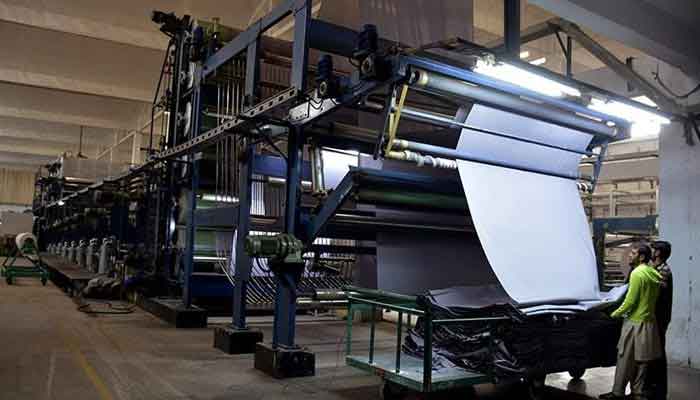Business
Pakistan’s textile exports see massive decline of 28% in Feb
-

 Entertainment21 hours ago
Entertainment21 hours agoReham Khan’s counsel to Hania Amir between marriage versus career
-

 Latest News20 hours ago
Latest News20 hours agoThe government and the military are successfully combating drug abuse through a nationwide anti-drug operation.
-

 Latest News20 hours ago
Latest News20 hours agoAt a ceremony held at Mirpur, the Prime Minister of Jammu and Kashmir stated, “We will not hesitate to make any sacrifice for peace in the region.”
-

 Latest News20 hours ago
Latest News20 hours agoThe 26th Amendment to the Constitution: The Amendment That Completes the Charter of Democracy: Bilawal
-

 Latest News20 hours ago
Latest News20 hours agoIn the border region, a Lahore police officer was detained for allegedly using drones to smuggle drugs.
-

 Latest News20 hours ago
Latest News20 hours agoJudicial Appointments in the Supreme Court Will Be Made Transparent: Law Minister
-

 Latest News20 hours ago
Latest News20 hours agoPakistan’s Deputy Prime Minister will be present at the Commonwealth Heads of Government Meeting, which will take place in Samoa.
-

 Entertainment21 hours ago
Entertainment21 hours agoThe Punjab government initiates the ‘Dhee Rani’ initiative for underprivileged couples.























